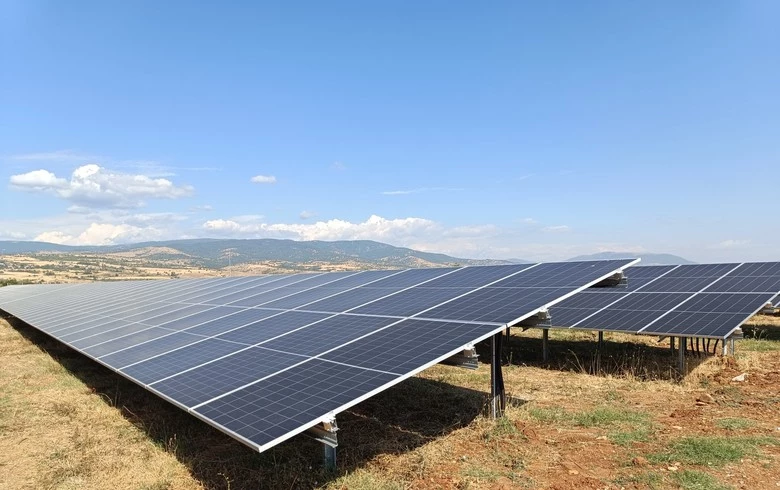Written By: Faith Jemosop
Bitcoin mining is increasingly becoming a key driver of Kenya’s ambitious green energy agenda, helping to monetize surplus renewable electricity, attract international investment, and expand access to clean power across the country.
Kenya already generates over 80% of its electricity from renewable sources such as geothermal, solar, wind, and hydropower, ranking it among the top African countries committed to clean energy. The government has set a bold target to achieve 100% renewable energy generation within the next decade. However, integrating intermittent renewable sources into the grid and managing fluctuating demand have posed challenges.
Bitcoin mining, a process that uses powerful computers to validate cryptocurrency transactions, is emerging as an innovative solution to these challenges by acting as a flexible energy consumer. Mining operations can quickly adjust their electricity usage, allowing Kenya to convert surplus renewable power into valuable cryptocurrency, thus creating economic incentives for green energy production.
Turning Excess Renewable Energy Into Economic Value
Renewable energy production is often variable; solar and wind generation fluctuate with weather and time of day. This intermittency sometimes results in surplus electricity when demand is low, which traditionally goes unused or wasted.
Bitcoin mining can absorb this excess power because mining rigs operate 24/7 and can be turned on or off relatively quickly. By tapping into surplus renewable energy, miners help maximize the utilization of clean power plants. This arrangement improves the profitability of renewable energy projects by creating a stable revenue stream from otherwise idle electricity.
Energy experts note that this dynamic “demand response” mechanism benefits the entire energy ecosystem by stabilizing the grid and reducing waste. It also allows Kenya to attract private capital into green infrastructure development, which has historically been constrained by inconsistent demand and financial risks.
Strategic Partnerships Accelerating Green Energy and Crypto Mining
The Kenyan government is actively encouraging Bitcoin mining to complement its renewable energy strategy. In 2024, Marathon Digital Holdings, one of the world’s largest Bitcoin mining companies based in the United States, signed a landmark agreement with Kenya’s Ministry of Energy and Petroleum to invest over $80 million in renewable energy infrastructure.
This partnership aims to harness Kenya’s abundant green energy resources, especially geothermal power, to fuel mining operations sustainably. By doing so, Marathon and its partners expect to generate economic benefits that extend beyond cryptocurrency profits — including job creation, technology transfer, and increased revenue for Kenya’s energy sector.
Energy ministry officials have expressed optimism that such collaborations will accelerate Kenya’s transition to a low-carbon economy while enhancing energy security and affordability.
Empowering Rural Communities Through Decentralized Mining
Beyond large-scale projects, innovative start-ups are pioneering decentralized and mobile Bitcoin mining solutions powered by renewable energy. Companies like Gridless are deploying solar- and geothermal-powered mobile mining units capable of operating off-grid in rural areas.
These mobile mining rigs help convert locally generated clean energy into cryptocurrency revenue, which can subsidize electricity costs for remote communities. By turning renewable power into an economically sustainable asset, Bitcoin mining supports rural electrification and reduces reliance on expensive diesel generators.
Also read: How an EV Company Is Bringing Light and Hope to an Entire Village
This model also enhances grid stability by creating additional demand during periods of surplus production, preventing energy wastage and blackouts.
Leveraging Kenya’s Geothermal Advantage
Kenya is one of the world’s leading producers of geothermal energy, ranking third globally. Geothermal plants provide a stable and reliable source of clean electricity, which is ideal for energy-intensive Bitcoin mining operations.
KenGen, Kenya’s largest electric power producer, has proposed allocating surplus geothermal power to cryptocurrency miners. This approach not only optimizes the use of existing infrastructure but also helps reduce the carbon footprint of Bitcoin mining, which has been a global concern.
By integrating mining operations with geothermal power, Kenya is positioning itself as a pioneering hub for environmentally sustainable cryptocurrency production.
Addressing Environmental Concerns of Bitcoin Mining
Bitcoin mining has faced widespread criticism for its high energy consumption, especially in regions reliant on fossil fuels. However, Kenya’s model demonstrates how mining can be powered by renewable energy without exacerbating carbon emissions.
Experts emphasize that when Bitcoin mining aligns with clean energy sources, it can actually incentivize the expansion of renewables by providing stable demand and financial returns. This contrasts with traditional mining hotspots where fossil fuel energy often dominates, leading to significant environmental harm.
Kenya’s approach offers a replicable example of how cryptocurrency technologies can support rather than hinder global decarbonization efforts.
Economic and Social Impacts of Green Bitcoin Mining
Besides environmental benefits, Bitcoin mining is contributing to Kenya’s economic development. Mining operations create jobs, both directly in mining centres and indirectly through construction, maintenance, and technology services.
The influx of investment in green energy infrastructure also stimulates local economies and generates tax revenues. Furthermore, the growth of blockchain and cryptocurrency industries is fostering innovation and skills development among Kenya’s young tech-savvy population.
Also read: Nyika signs PPA for first hydroelectric power and utility-scale plant in Malawi’s north
By providing a stable income stream for renewable energy producers, mining reduces the financial risks associated with green energy projects, encouraging further investment.
Opportunities and Challenges
While Kenya’s integration of Bitcoin mining with renewable energy is promising, challenges remain. Regulatory clarity around cryptocurrency operations is evolving, and the government is working to balance innovation with consumer protection and financial stability.
Infrastructure development, such as expanding grid capacity and improving transmission lines, is also critical to maximizing the benefits of this synergy.
Nonetheless, the Kenyan example offers valuable lessons for other countries seeking sustainable ways to grow their renewable energy sectors while embracing digital innovation.




